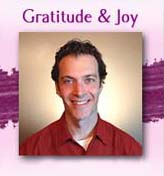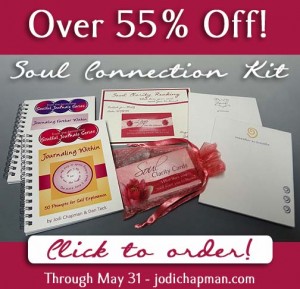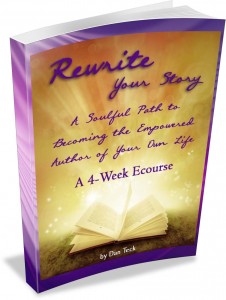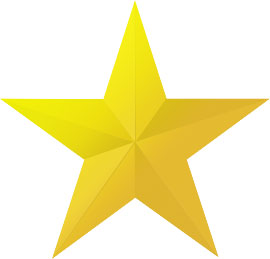 I’m thrilled to share that my wife, Jodi, and I have just realized a long-term dream: opening registration for the Soulful Life Sanctuary!
I’m thrilled to share that my wife, Jodi, and I have just realized a long-term dream: opening registration for the Soulful Life Sanctuary!
The sanctuary is a beautiful online community that helps you reconnect with your soul while connecting with like-minded friends. It’s also an all-encompassing collection of tools and resources to help you live your most soulful life — including ecourses, live and archived classes, plus Sacred Spaces and Soul Guides in more than a dozen areas, such as Wellness, Creativity, Soulful Parenting, Self-Care, and Spirituality.
I’m excited to share more about the sanctuary (as well as how you can get a $100 earlybird discount + over $800 in bonus gifts), but first I want to talk about the Sacred Space that I’ll be the guide for — Gratitude & Joy — and why it’s so important to nourish this part of our lives!
…
Feeding Joy
You may already know the Cherokee story of the two wolves, but here’s the super-short, Q&A version:
Q: Two wolves are fighting within you — which one will win?
A: The one you feed.
As much as I generally shy away from using violent metaphors (I tend to modify expressions, such as “two birds on one perch” or “more than one way to play with a cat”), I do love this story — for a number of reasons:
For one thing, it doesn’t deny aspects of life that may feel negative or unpleasant — such as anger, envy, greed, or arrogance — which are represented by one of the wolves. Yes, these and other less desirable qualities live within us. But that doesn’t mean that they have to control or consume us!
We may not always have a choice about what thoughts or emotions flit through our minds and hearts, but we do have a choice about which ones we “feed.” And that’s the main part of this story that I love: the reminder that we always have a choice!
- A choice about what we focus on.
- A choice about what we dwell on.
- A choice about what we talk about.
- A choice about what we we give our time, energy, and attention.
- A choice about which thoughts, emotions, and impulses we act on — and which ones we merely acknowledge before quickly moving on.
In other words, we have a choice about which “wolf” we feed — and we can always choose to feed the one that represents peace, love, compassion, and Gratitude and Joy!
And that’s what my Sacred Space in the Soulful Life Sanctuary is all about: feeding gratitude and joy — nurturing it, giving it attention, talking about it, acting on it, having fun with it, nourishing it with your love and energy, and hanging out with others who are doing the same.
(You probably know the principle of how your attitudes tend to reflect the people you spend the most time around — so why not consciously choose to spend more time with those whose focus reflects what you want for your life…such as more joy?)
This “two-wolf” approach doesn’t mean that we ignore or resist the difficult aspects of our lives. In fact, sometimes resisting things can be a way of feeding them — just as much as embracing them. To find a happy medium between resisting negativity and totally giving in to it, I give myself a “five-minute vent” rule: if something negative arises, I give myself permission to vent (or internally stew) for five minutes (slightly longer for more troubling situations, slightly less for minor ones). And then I’ll consciously shift my focus to what I’d rather feed: gratitude, joy, and love.
Because that’s the wolf that I want to be victorious in my life.
…
As I mentioned, I warmly invite you to check out the Soulful Life Sanctuary, where we offer lots of ways to feed your joy and your soul — while connecting with like-minded friends who are sharing this journey.
Sanctuary doors officially open on July 1, but if you register before then, you’ll get a $100 earlybird discount (that’s more than 40% off the normal price of $247!) + if you sign up before July 31, you’ll get instant access to over $800 in bonus gifts: including one-on-one coaching sessions, ecourses, ebooks, and other wonderful tools to help you connect with your soul and feed your joy! 🙂
Please click here to learn more about the Soulful Life Sanctuary.
P.S. Affiliate program also available — so you can earn money (50% commission on each referral) while helping us spread the word about this beautiful community!







 For the last 25 years, I’ve been leading a double life.
For the last 25 years, I’ve been leading a double life.



